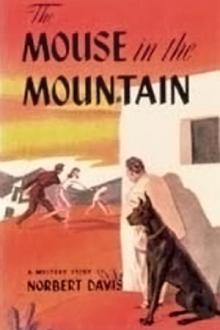HYPOLYMPIA Or The Gods in the Island An Ironic Fantasy - Edmund Gosse (important of reading books TXT) 📗

- Author: Edmund Gosse
Book online «HYPOLYMPIA Or The Gods in the Island An Ironic Fantasy - Edmund Gosse (important of reading books TXT) 📗». Author Edmund Gosse
[The terrace, as in the first scene; ZEUS enters from the house, conducted by HEBE and several of the lesser divinities.]
HEBE.
Will your Majesty be pleased to descend to the lower boskage?
ZEUS.
No! Place my throne here, out of the wind, in the sun, which seems to have very little fire left in it, but some pleasant light still. The sea down there is bright again to-day; the carrying of our unfortunate person upon its surface was probably the source of immense alarm to it. It quaked and blackened continuously. Now we are removed, it regains something of its normal quiescence. I trust that the land hereabouts is dowered with a less painful susceptibility.
GANYMEDE.
A priest, sire, the only one who saved his musical instrument through our calamities, stands within. Is your Majesty disposed to be sung to?
ZEUS.
No, certainly not. Which is he? [The PRIEST is pointed out.] What an odd-looking person! Yes, he may give me a specimen of his art--a short one.
[The PRIEST comes forward; he is dressed in wild Thessalian raiment. He approaches with uncouth gestures, and a mixture of servility and self-consciousness. On receiving a nod from ZEUS, he tunes his instrument and sings as follows:]
Wild swans winging Through the blue, Spiders springing To a clue, Till the sparkling drops renew All that ever Youth's endeavour Had determined to undo. White and blue are hoards of treasure, For the panting hands of pleasure To go dropping, dropping, dropping, Without measure Through and through.
ZEUS.
Very pretty, I must say. Would you repeat it again?
[PRIEST repeats it again.]
ZEUS.
What does it ... exactly mean? I think it quite pretty, you understand.
PRIEST.
Does your Majesty receive any impression from it?
ZEUS.
Well, I don't know that I could precisely parse it. But it is very pretty. Yes, I think I gain a certain impression from it.
PRIEST.
Do you not feel, sire, a peculiar sense of flush, of spring-tide--a direct juvenile ebullience?
ZEUS.
Ah, no doubt, no doubt. And a kind of nostalgia, or harking-back to happier days, a sense of their rapid passage, and their irrecoverability. Is that right?
PRIEST.
It is a positive divination!
ZEUS.
I am conscious of the agreeable recollection of an incident----
PRIEST [with rapture].
Ah!----
ZEUS.
A little event?----
PRIEST.
You make my heart beat so high, sire, that I can hardly speak. Deign, sire, to recall that incident.
ZEUS [with extreme affability].
It was hardly an incident.... I merely happened, while you were reciting your song, to remember an occasion on which--on which Iris, at the rampart of our golden wall, bending back, was caught by the wind, and--and the contours were delicious.
PRIEST.
Oh! the word, the word!
ZEUS [with slight hauteur].
I do not follow you. Her rainbow----
PRIEST.
Ah! yes, sire, the rainbow, the rainbow! O what an art of incontestable divination!
ZEUS [much animated].
But you did not say anything about a rainbow, nor describe one, nor ever mention the elements of such a bow.
PRIEST.
Ah! no, sire. That is the art of the New Poetry. It names nothing, it describes nothing. All that it designs to do is to place the mind of the listener--of the august and perspicacious listener--in such an attitude as that the unnamed, the undescribed object rises full in vision. The poet flings forth his melody, and to the gross ear it seems a mere tinkle of inanity. That is simply because the crowd who worship at the shrine of the Sminthean Apollo have been accustomed by an old-fashioned and ridiculously incompetent priesthood to look for an instant and mechanical relation between sound and sense. I would not exaggerate, sire; but the kind of poetry lately cultivated, not only at Delphi, but in Delos also, is simply obsolete.
ZEUS [suspiciously].
Again I am not sure that I quite follow you.
PRIEST.
To your Majesty, at least, the New Poetry opens its casket as widely as the rose-bud does to the zephyr.
ZEUS.
I can follow that--but it rather reminds me of the Old Poetry.
PRIEST.
It was intended to do so. What promptitude of mind! What divine penetration!
ZEUS [affably].
I have always believed that if I had enjoyed leisure from public life, I should have excelled in my judgment of the fine arts. [To the PRIEST, with gravity.] You are a gifted young man. Be sure that you employ your talents with discretion. Such an intellect as yours carries responsibility with it. I shall be quite pleased to permit you to recite "The Rainbow" to me again. [The PRIEST prepares to recite it.]
ZEUS.
Oh, not now! Some other time! [Graciously dismisses the PRIEST.]
ZEUS [after a long pause].
The attitude of my family, in these ambiguous circumstances, is everything that could be desired. My original feeling of irritability has passed away. I should have supposed it to be what Pallas calls "fatigue," a confusion or discord of the nerve-centres, which she tells me is incident to mortality. What Pallas can possibly know about it is more than I can guess, especially, as there were not infrequent occasions on Olympus itself on which my Supreme Godhead was disturbed by flashes of what I should be forced to describe as exasperation, states of mind in which I formed--and indeed executed--the sudden project of breaking something. These were, I believe, simply the result of an excessive sense of responsibility. I am not one of those who conceive that the duty of deity is to sit passive beside the cup of nectar. Here on this island, in the permanent absence of that refreshment, I reflect (I perceive that I shall have very frequent opportunities for reflection) that I was perhaps only too anxious to preserve the harmony of heaven. My sense of decorum--may it not have been excessive? From below, as I imagine, from the stations occupied--I will not say by the inanimate or half-animate creation, such as insects, or men, or minerals--but by the demi-gods, I take it that the dignity and orbic beauty of our court appeared sublimely immaculate. In the inner circle, alas! no one knows better than I do that there were--well, dissensions. I will go further, in candour to myself, and admit that these occasionally led to excesses. I cannot charge my recollection with my having done anything to excuse or encourage these. The personal conduct of the Sovereign was always, I cannot but believe, above reproach. But the eccentricities--if I may style them so--of certain of my children were sometimes regrettable. I wonder that they did not age me; they would do so immediately in my present condition. But in this island, where we are to swarm like animalcules in a drop of water, I shall be relieved of all responsibility. Where there is no one to notice that errors are committed, no errors are committed. As the person of most experience in the whole world, I do not mind stating my ripe opinion that a fault which has no effect upon political conditions is in no sensible degree a fault at all. Pallas would contend the point, I suppose, but I am at ease. I shall not allow the conduct of my children, except as it shall regard myself, to affect my good-humour in the slightest degree.
[PHOEBUS enters, slowly pacing across the terrace.]
ZEUS.
Your planet seems to have recovered something of its tone, Phoebus.
PHOEBUS.
If, father, you regard--as you have every right to do--your venerable person as the centre of my interests, I rejoice to allow that this seems to be the case.
ZEUS [with a touch of reserve].
I meant that the sun shows a tendency to return to its forgotten orbit. It is quite warm here out of the wind. [More genially.] But as to myself, I admit a great recovery in my spirits. I have given up fretting for Iris, who was certainly lost on our way here, and Pallas has been showing me a curious little jewel she brought with her, which has created in me a kind of wistful cheeriness. I do not remember to have experienced anything of the kind before.
PHOEBUS.
I declare I believe that you will adapt yourself as well as the rest of us to this anomalous existence.
ZEUS.
We shall see; and I shall have so much time now, that I may even--what I am sure ought to gratify you, Phoebus,--be able to give my attention to the fine arts. A fallen monarch can always defy adversity by forming a collection of curiosities.
PHOEBUS.
If you make the gem of which Pallas is so proud the nucleus of your cabinet, I feel convinced that it will give you lasting satisfaction. And we are so poor now that it can never be complete, and therefore never become tiresome. But what was it that the oracle of Nemea amused and puzzled us by saying, "To form a collection is well, yet to take a walk is better"? I will attend your Majesty to your apartments, and then wander in these extensive woods.
[Exeunt.
X
[A dell below the house, with a white poplar-tree growing alone. Under it HERACLES sits, in an attitude of deep dejection, his club fallen at his feet, a horn empty at his side. To him enters EROS.]
EROS.
I have been congratulating our friends on their surpassing cheerfulness. Even Zeus is displaying a marvellous longanimity in his adverse state, and Pallas is positively frivolous. We must have disembarked, however, upon the island of Paradox, for everything goes by contraries; here I find you, Heracles, commonly so serene and uplifted, sunken in the pit of depression. You should squeeze the breath out of your melancholy, as you did out of Hera's snakes so long ago.
HERACLES.
That was a foolish tale. Do you not recollect that I am not as the rest of you?
EROS.
Come, man, brighten up! You look as sulky as you did when I broke your bow and arrows, and set Aphrodite laughing at you. But I have learned manners, and the goddesses only smile now. Cheer up! How is your destiny a whit different from ours?
HERACLES.
That rude old story about Alcmena, Eros--it is impossible that you can be the dupe of that? When I hunted lions on Cithaeron--that really was a gentlemanlike sport, my friend--when I hunted lions I was not a god. Gods don't hunt lions, Eros; I have not gone a-hunting since that curious affair on Mount OEta. You remember it?
EROS.
I have preferred to forget it.
HERACLES.
Only an immortal can afford wilfully to forget, and I--well, you know as well as I do that I am only a mortal canonised. I never understood the incident, I confess. I lay down among the ferns to sleep, after an unusually heavy day's bag of monsters. It was sultry weather; I woke to an oppressive sense of singeing, I found myself enveloped in a blaze of leaves and brushwood.... But I bore you, and what does it matter now? What does anything matter?
EROS.
No, no; pray continue! I am excessively interested. You throw a light on something that has always puzzled me, something that----
HERACLES.
A dense black smoke





Comments (0)